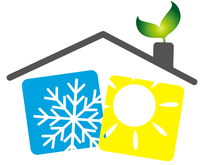In 2020, renewable energy accounted for 23% of the total energy used for heating and cooling in the EU, steadily increasing from 12% in 2004 and 22% in 2019. This level and growth are similar to the one observed for the overall share of renewables, which increased from 10% in 2004 to 22% in 2020. Developments in the industrial sector, services and households (including the electrification of heating by using heat pumps) contributed to the growth of renewable energy in heating and cooling.
Among the Member States, Sweden stands out with two thirds (66%) of the energy used for heating and cooling in 2020 stemming from renewable sources (mostly biomass and heat pumps). Estonia and Finland (both 58%), Latvia (57%), Denmark (51%) and Lithuania (50%) followed suit, with more than half of the energy used for those purposes coming from renewables. In Estonia and Lithuania, the share of renewables in heating and cooling is, respectively, 29 and 24 percentage points higher than their overall share. This is the highest difference among all EU countries. Iceland (EFTA country) stands out with 80% of renewables used for heating and cooling (mostly due to geothermal energy).
In contrast, in Ireland (6%), the Netherlands and Belgium (both 8%) renewable sources contributed the least to heating and cooling. In these countries, the share of renewables in heating and cooling is lower by 6 and 5 percentage points, respectively, than their overall share. This is the highest difference among all EU countries.
Source dataset: nrg_ind_ren
Renewable energy sources used for heating and cooling include solar thermal, geothermal energy, ambient heat captured by heat pumps, solid, liquid and gaseous biofuels and the renewable part of waste.
This article is being published on the occasion of the EU Industry Days. This is a flagship annual event, highlighting industrial frontrunners and ongoing industrial policy discussions whilst improving the knowledge base of European industry.
For more information:
- Eurostat Statistics Explained article on renewable energy
- Eurostat dedicated section on energy
- Eurostat database on energy
To contact us, please visit our User Support page.
For press queries, please contact our Media Support.


